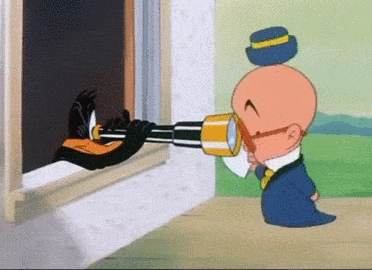
Anton Chekhov once wrote in a letter to a friend, "One must never place a loaded rifle on the stage if it isn't going to go off. It's wrong to make promises you don't mean to keep." This idea became a literary device known as "Chekhov's Gun". Chekhov's Gun has many applications, but for now we're going to focus on the most basic one. Setting the scene.
I think writing description is a bit like building a jet plane. That may have something to do with the fact that my husband is currently studying for a degree in aeronautical engineering, and I'm writing this while surrounded by books on airplane design, but the comparison is still valid. In both cases you want your final product to be as streamlined as possible. Otherwise the wind will resist the plane's forward movement, and the description will impede the progress of the plot.
But how much description is too much? How do you know when to stop? Chekhov's gun and my husband's airplanes can both give us the key. Include only that which serves a purpose. If the gun is there, you have to fire it. Otherwise don't waste words on it. It will only confuse the reader.
Your description doesn't have to justify itself right away. You can mention objects that won't become important until further into the story, but the more significant the object is, the more consistent its presence in the story should be.
That only works because the reader has been paying attention to Emily from the very beginning. She is consistently present in the story, and each turn of the plot invests her with another layer of meaning. If she'd only gotten two sentences in the first chapter and then had disappeared until the middle of the story, the symbolism wouldn't be as powerful.
There are many other examples. From the the Sword in the Stone, to Cinderella's slipper, to the One Ring, literature has a long tradition of investing inanimate objects with deep emotional and even philosophical significance. Just remember that simply by drawing attention to the object, you are making the reader a promise. If that object never becomes important, you're breaking your promise. In fiction a cigar is never allowed to be just a cigar.













